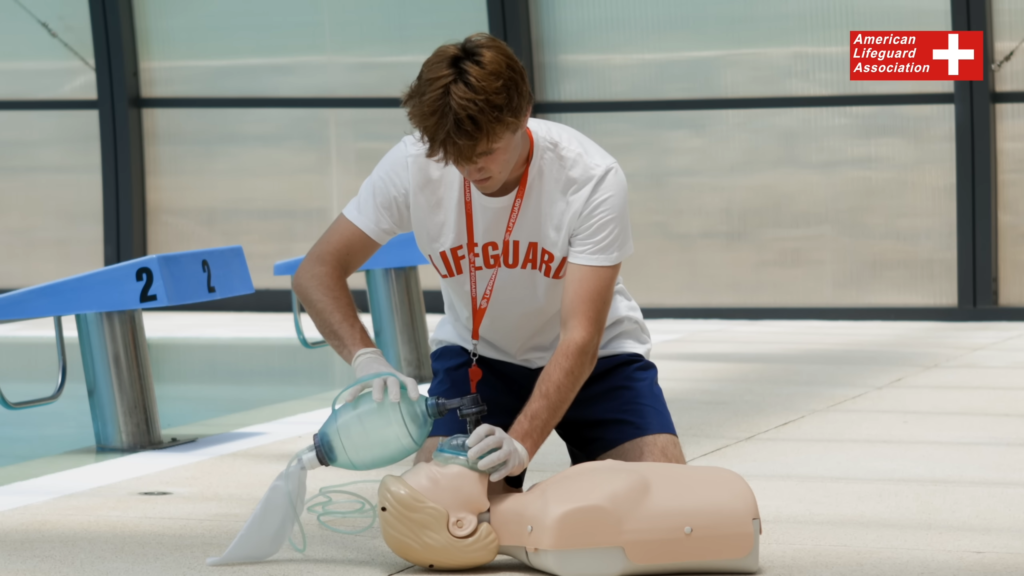1. The Essential Role of Lifeguard Training Certification
Lifeguards are more than just watchful eyes—they are trained professionals entrusted with the safety of others around water. Earning a lifeguard training certification is a crucial step toward becoming a competent and responsible rescuer. With water-related activities being a central part of recreational life, the demand for well-trained, certified lifeguards continues to grow. The American Lifeguard Association provides comprehensive lifeguard training certification programs designed to prepare individuals for this vital role through nationally recognized, top-tier training.
2. Why Lifeguard Training Certification Is a Must
In today’s world, organizations and employers require proof of training and competency for anyone working as a lifeguard. A lifeguard training certification validates your ability to respond effectively to aquatic emergencies, perform rescues, and provide first aid and CPR. The American Lifeguard Association ensures that all its certification programs are aligned with national safety standards and are accepted by aquatic facilities, resorts, schools, and public pools across the country. By choosing the American Lifeguard Association, candidates receive not only certification but also professional credibility.
3. Who Can Apply for Lifeguard Training Certification?
Anyone with a passion for water safety and a desire to make a difference can pursue lifeguard training certification. Most programs, including those from the American Lifeguard Association, require candidates to be at least 15 years old before the final day of the course. Additionally, participants must demonstrate basic swimming skills, including continuous swimming, treading water, and underwater retrieval. The American Lifeguard Association welcomes all qualified candidates and offers guidance at every step, from enrollment to certification.
4. What to Expect from the Certification Process
The lifeguard training certification process through the American Lifeguard Association includes a mix of theoretical learning and hands-on practice. Trainees learn to recognize and respond to emergencies, perform water rescues, and apply first aid and CPR techniques. The program is structured to provide real-world simulations, enabling trainees to build confidence and react swiftly in emergencies. At the conclusion of the course, participants must pass written and practical exams to earn their certification from the American Lifeguard Association.
5. Skills Taught in Lifeguard Training Certification
The core skills covered in a lifeguard training certification program include water rescue techniques, spinal injury management, breathing and cardiac emergency response, and the use of emergency equipment such as rescue tubes and AEDs. The American Lifeguard Association places strong emphasis on both solo and team rescue operations, ensuring that certified lifeguards can adapt to any environment. These critical skills are reinforced through drills, group activities, and one-on-one coaching throughout the program.
6. CPR, AED, and First Aid: A Lifeguard’s Toolkit
One of the most valuable aspects of lifeguard training certification is the integration of CPR, AED, and first aid instruction. Lifeguards must be prepared not only for water-related incidents but also for other emergencies that may occur in or near aquatic environments. The American Lifeguard Association incorporates the latest guidelines from health and safety authorities to teach lifesaving techniques that make a real impact. These certifications are often required by employers and form an essential part of the training offered by the American Lifeguard Association.
7. Different Lifeguard Certifications Offered
The American Lifeguard Association offers a variety of certification tracks to meet the needs of different work environments. These include Shallow Water Lifeguard, Waterfront Lifeguard, Waterpark Lifeguard, and Professional Rescuer CPR certifications. Each program is tailored to the unique challenges of its respective setting. For example, a waterfront lifeguard will be trained in surf rescues and the use of rescue boards, while a waterpark lifeguard will focus on ride dispatching and high-volume patron scanning. The American Lifeguard Association ensures each lifeguard is equipped for success in their chosen environment.
8. Recertification and Continuing Education
Lifeguard training certification typically remains valid for two years, after which lifeguards are required to complete a recertification course. The American Lifeguard Association offers convenient and efficient recertification programs that review critical skills, update participants on new safety protocols, and reinforce readiness. These refresher courses are vital for maintaining professional standards and ensuring lifeguards remain confident in their abilities. By renewing certification through the American Lifeguard Association, lifeguards stay at the top of their game.
9. Career Opportunities After Certification
With a lifeguard training certification from the American Lifeguard Association, individuals unlock access to job opportunities at pools, beaches, lakes, summer camps, cruise ships, and aquatic centers. Lifeguarding is not only a meaningful job—it is also a foundation for careers in public safety, fitness, education, and emergency services. Many certified lifeguards go on to become aquatic directors, EMTs, paramedics, or even lifeguard instructors. The certification from the American Lifeguard Association provides the credibility and training needed to open these doors.
10. Choose American Lifeguard Association for Lifeguard Training Certification
When it comes to lifeguard training certification, the American Lifeguard Association is a name you can trust. With decades of experience, expert instructors, and courses that meet the highest safety standards, the American Lifeguard Association provides unmatched training and support. Whether you’re beginning your journey as a lifeguard or looking to renew your skills, the American Lifeguard Association offers flexible, accessible, and reliable certification programs nationwide. Start your certification today and become part of a legacy of water safety professionals dedicated to protecting lives.

